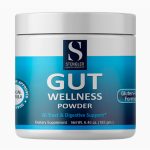Turmeric, a golden-yellow spice derived from the rhizome of the Curcuma longa plant, has been a staple in Southeast Asian cuisine for over 4,000 years. It has recently entered the global health spotlight due to its potent anti-inflammatory and antioxidant properties. While turmeric is rich in bioactive compounds, its primary active ingredient, curcumin, is primarily responsible for its therapeutic effects.
Curcumin, the primary active component in turmeric, is known for its potent anti-inflammatory and antioxidant properties, which may help treat and prevent various health conditions, including arthritis, ulcerative colitis, and even some types of cancer. This article will delve into the myriad potential health benefits of turmeric, explore its therapeutic uses, and provide practical advice on effectively incorporating it into your daily routine.
Anti-Inflammatory Properties
One of turmeric's most widely recognized benefits is its powerful anti-inflammatory capabilities. Chronic inflammation is a root cause of many major diseases, including heart disease, cancer, metabolic syndrome, Alzheimer's disease, and various degenerative conditions. Curcumin, the active compound in turmeric, can inhibit many molecules known to play major roles in inflammation.
Clinical studies have shown that curcumin can be as effective as some anti-inflammatory drugs but without the side effects. For instance, a systematic review and meta-analysis of eight randomized controlled trials reported that curcumin significantly reduced pain and improved physical function in patients with arthritis, comparing favorably to conventional treatments such as ibuprofen and diclofenac. These results suggest that standard doses of turmeric extracts (typically around 1 gram per day of curcumin) can lead to improvements similar to those seen with conventional anti-inflammatory medications.
Arthritis Relief
Arthritis, a common condition characterized by inflammation of the joints, can be debilitating for many individuals. Turmeric's anti-inflammatory properties make it a natural choice for managing arthritis symptoms. A meta-analysis of data comparing C. longa extract with ibuprofen in patients with osteoarthritis found no significant difference between the treatment groups concerning pain outcomes, physical function, or adverse events. This underscores curcumin's potential as a safe and effective alternative to traditional arthritis medications.
Moreover, further studies and clinical trials have supported the efficacy of curcumin in reducing arthritis symptoms. For instance, a 2016 systematic review highlighted that curcumin significantly reduced pain scores and improved functional outcomes, such as morning stiffness and movement, without fundamental improvements in arthritis symptoms. This positions curcumin as a valuable complementary treatment to conventional arthritis therapies.
Digestive Health and Ulcerative Colitis
Beyond arthritis, turmeric shows promise in supporting digestive health, particularly concerning ulcerative colitis, a chronic inflammatory bowel disease. Clinical trials have demonstrated that curcumin can aid in the remission and improvement of this condition when used as an adjunctive treatment.
A 2020 systematic review and meta-analysis involving seven studies and 380 participants reported significant improvements in clinical remission, clinical response, and endoscopic response/remission of ulcerative colitis with adjuvant curcumin therapy compared to controls. These findings suggest that curcumin can enhance the efficacy of conventional treatments, leading to better patient outcomes.
Cardiovascular Health
Maintaining cardiovascular health is essential for overall well-being. Curcumin may promote heart health by improving endothelial function and the health of the thin membrane that lines the heart and blood vessels. Endothelial dysfunction is a significant driver of heart disease, and curcumin's anti-inflammatory and antioxidant properties can help mitigate this risk.
Research indicates that curcumin can improve endothelial function, potentially reducing the risk of cardiovascular events. Additionally, curcumin's ability to reduce inflammation and oxidation levels contributes to a healthier cardiovascular system, making it a valuable addition to heart health management practices.
Cancer Prevention and Treatment
Emerging evidence suggests that curcumin may have anti-cancer properties, potentially inhibiting the growth and spread of certain types of cancer. While more research is needed to understand curcumin's role in cancer prevention and treatment fully, preliminary studies indicate promising results.
Curcumin has been shown to affect cancer growth and development at various stages, including the growth of cancerous cells, angiogenesis (the formation of new blood vessels in tumors), and metastasis (the spread of cancer). These effects are attributed to curcumin's ability to modulate multiple molecular targets, including transcription factors, growth factors, and inflammatory cytokines.
Although curcumin is not a standalone cancer treatment, its potential to complement existing cancer therapies and its role as a preventive measure highlight its significance in the ongoing battle against cancer.
Cognitive Function and Brain Health
Turmeric's potential benefits extend to brain health, with growing evidence suggesting that curcumin may support cognitive function and protect against neurodegenerative diseases. Conditions such as Alzheimer's disease are characterized by chronic inflammation and oxidative stress, both of which curcumin can help mitigate.
Studies have shown that curcumin can increase brain-derived neurotrophic factor (BDNF), a protein that promotes the survival of nerve cells and plays a critical role in learning and memory. Additionally, curcumin's ability to cross the blood-brain barrier allows it to exert its effects directly on the brain, further enhancing its potential as a neuroprotective agent.
While more research is needed, the evidence suggests that incorporating turmeric into the diet could support cognitive health and reduce the risk of neurodegenerative diseases.
Practical Applications and Usage
Incorporating turmeric into your daily routine is relatively simple, and there are various ways to do it. While turmeric supplements are an option, naturally adding turmeric to your diet may offer additional benefits without the risks associated with high-dose supplements.
As a Spice
Turmeric is a versatile spice that can be added to various dishes, including curries, soups, stews, and smoothies. When used as a spice, turmeric imparts a warm, earthy flavor and vibrant color to foods. Consuming turmeric with black pepper, which contains piperine, a compound that enhances curcumin absorption, is beneficial for optimal absorption.
Recipes such as turmeric-infused chicken, fish, and vegetable dishes are excellent ways to incorporate this spice into your meals. For instance, UnityPoint suggests adding turmeric to marinades or lentil dishes to enhance the flavor and reap its health benefits.
As a Tea
Turmeric tea, also known as “golden milk,” is another popular way to enjoy the benefits of this spice. To prepare turmeric tea, boil two cups of water with one teaspoon of turmeric powder and half a teaspoon of black pepper. Let it simmer for 10 to 15 minutes, then add lemon, honey, or milk to taste. This soothing beverage can provide a comforting way to incorporate turmeric into your daily routine.
As a Supplement
Curcumin supplements and capsules are available for those who prefer a more concentrated turmeric. These supplements often combine curcumin with piperine to enhance absorption and maximize the health benefits. When considering turmeric supplements, it's essential to consult with a healthcare provider to ensure they are appropriate for your needs and to avoid potential interactions with other medications.
Safety and Considerations
While turmeric and curcumin are generally considered safe when consumed in moderate amounts, it's crucial to be aware of potential side effects and interactions. High doses of curcumin, particularly in supplement form, may cause gastrointestinal issues such as nausea, diarrhea, and yellowing of the stool. Additionally, individuals with gallbladder disease should avoid high doses of turmeric due to its potential to exacerbate the condition.
Turmeric may also interact with certain medications, including blood thinners and antacids. Therefore, it's essential to consult with a healthcare provider before incorporating high doses of turmeric or curcumin supplements into your routine, especially if you are taking other medications or have underlying health conditions.
Conclusion
Turmeric, with its active component curcumin, offers a wide range of potential health benefits, from reducing inflammation and alleviating arthritis symptoms to supporting digestive health and protecting against chronic diseases. Its versatility as a spice, tea, and supplement makes it easy to incorporate into various dietary practices.
While more research is needed to understand the extent of turmeric's therapeutic potential fully, the existing evidence is promising. As always, it's essential to approach any new supplement or dietary change with caution and consult with a healthcare provider to ensure it aligns with your individual health needs.
By integrating turmeric into your daily routine, you can take advantage of its powerful anti-inflammatory and antioxidant properties, potentially improving your overall health and well-being. Whether you enjoy it in your meals, as a soothing tea, or in supplement form, turmeric's golden touch may offer a natural way to support a healthier, more vibrant life.
For further reading on turmeric's benefits and uses, visit Drugs.com, Medical News Today, and the Arthritis Foundation. These resources provide additional insights and updates on the latest research surrounding this ancient spice.










